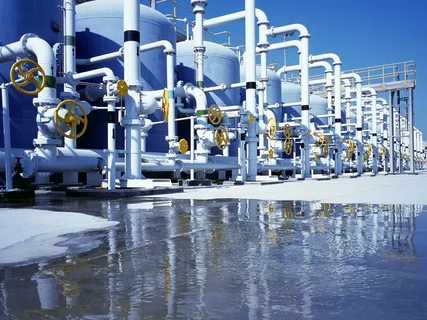Water is a vital resource that sustains life on our planet. However, pollution and contaminants can easily compromise the quality of our water sources, posing serious risks to public health and the environment.
Fortunately, technology is playing a significant role in improving water treatment processes and transforming contaminated water into a safe and usable resource.
In this blog, we will explore the innovative technologies that are being implemented to improve water treatment and the benefits they offer to our communities and the planet.
Table of Contents
How Pollution Affects the Quality of Water
Pollution can have severe consequences on water quality, and its harmful effects can be felt in various ways. For example, when industrial waste and chemicals are released into water sources, they can cause fish and other aquatic life to die, disrupting the ecosystem. Moreover, pollutants can seep into the groundwater, making it unfit for human consumption and irrigation.
You may not realize it, but the products you use and the actions you take can contribute to water pollution. For instance, chemicals found in common household cleaners, fertilizers, and pesticides can easily enter our water sources through runoff. Similarly, when you dispose of prescription drugs or other chemicals down the drain, they can end up in our waterways, posing a risk to human health and the environment.
The World Health Organization (WHO) states that over 80% of the world’s wastewater is discharged into the environment without being appropriately treated. This not only causes pollution but also leads to the depletion of our precious water resources. If we don’t have proper water treatment solutions implemented, polluted water can have serious consequences on public health and the environment.
The detrimental effects of water pollution on human health cannot be ignored. Exposure to contaminated water can lead to a number of chronic health conditions, such as skin problems, diarrhea, reproductive problems, and even cancer. It is especially concerning for children, pregnant women, and the elderly.
The case of Camp Lejeune Water Contamination is a prime example of the devastating effects of water pollution on human health. Human ignorance has caused the drinking water at the camp to be polluted with harmful chemicals for decades.
TorHoerman Law, a US-based law firm, referenced many studies that show children who were exposed to contaminated drinking water at Camp Lejeune had increased rates of birth defects and childhood illnesses, such as leukemia, lymphoma, and neural tube defects.
The devastating health effects caused by the contaminated water at Camp Lejeune led many residents and their families to file a lawsuit seeking compensation for the harm they suffered. The Camp Lejeune lawsuit involved thousands of plaintiffs who claimed that the Marine Corps was negligent in its handling of the toxic chemicals that contaminated the water supply.
How Technology Plays a Vital Role in Water Treatment Processes
Technology is pivotal in modern water treatment processes. Advanced water treatment technologies can remove pollutants from water, ensuring improved water quality. Without these technologies, many communities around the world would not have access to safe and clean drinking water.
You may be interested to know that there are several innovative technologies that are transforming the water treatment industry. For example, membrane filtration is a cutting-edge technology that is being used to remove contaminants from water. This technology uses thin membranes to separate impurities from water, producing clean and pure drinking water.
Moreover, ultraviolet (UV) disinfection can also be used to treat contaminated water efficiently. The process of UV disinfection utilizes intense light with high energy to eliminate harmful microorganisms that may exist in water. This technology is effective in removing bacteria, viruses, and other pathogens, making water safe for human consumption.
According to the World Economic Forum, more than 44 million people in the US lack sufficient water systems, and 2.2 million people lack access to basic indoor plumbing and running water. This highlights the urgent need for effective water treatment technologies to provide everyone safe and clean drinking water.
Hence, the role of technology in water treatment processes is crucial in addressing the global water crisis, as it provides innovative solutions to improve the quality of water.
Innovative Technologies Transforming Water Treatment Today
Innovative water treatment technologies are transforming the way we treat water, making it possible to turn polluted water into safe, drinkable water. These technologies are advancing rapidly, providing new solutions to the challenges posed by water pollution.
One of the most exciting water treatment technologies today is electrocoagulation. This method utilizes electric charges to destabilize and eliminate suspended particles, bacteria, viruses, and other pollutants present in water. It is an efficient and cost-effective way to treat water, making it an attractive option for many communities.
Moreover, transforming water treatment is also possible through advanced oxidation. This process uses a combination of chemicals and light to remove contaminants from water. It is highly effective at breaking down complex organic compounds that are difficult to remove with conventional water treatment methods.
UNESCO has warned that if we don’t significantly improve water supply management, the world will face a 40% shortfall in water supply by 2030. With demand for water set to rise by 55% by 2050 and 20% of global groundwater already overexploited, innovative technologies for water treatment are critical.
Advanced technologies like electrocoagulation and advanced oxidation are playing a vital role in transforming water treatment and helping us tackle these challenges.
By investing in research and development, we can continue to advance these technologies and ensure a sustainable future for our planet. With the help of innovative water treatment technologies, we can meet the growing demand for water and ensure access to safe and clean drinking water for all.
The Benefits of Tech-Enabled Water Treatment for Environment and Health
Technology-enabled water treatment has brought several benefits to our environment and health.
By using advanced techniques and equipment, water treatment plants can purify water more effectively and remove harmful pollutants, leading to improved health outcomes. This also has the added benefit of decreasing the environmental impact of water treatment processes by reducing their carbon footprint.
The technologies are imperative in today’s environment where water bodies like rivers, lakes, and estuaries have become extremely polluted for any activities, as reported by Environmental Integrity Project. In fact, roughly 51% of the rivers and streams in the US and 56% of the lake acres in the US are labeled as impaired. In addition, 26% of estuary miles are also not fit for various purposes.
These statistics indicate that the water quality of these bodies is inadequate for activities such as swimming, fishing, or drinking due to pollution. Technology-enabled water treatment is playing a critical role in improving the quality of our water bodies, reducing pollution, and protecting aquatic life.
Technology-enabled water treatment is also beneficial for our health. By removing harmful contaminants like lead, arsenic, and other chemicals, we can ensure that our drinking water is safe and healthy to consume. With access to clean drinking water, we can prevent a range of waterborne diseases and illnesses, promoting better overall health and well-being.
Further, the use of technology in water treatment can contribute to the reduction of plastic waste produced from the consumption of bottled water. By supplying safe and clean tap water, individuals can decrease their dependence on bottled water and decrease the volume of plastic waste that is deposited in our oceans and landfills.
Final Thoughts
Technology is playing a crucial role in revolutionizing water treatment processes and improving water quality. By using innovative solutions, we can efficiently address contamination issues and deliver safe drinking water to populations worldwide.
By harnessing the power of technology and investing in sustainable water treatment practices, we can protect our environment and ensure access to clean water for generations to come.

